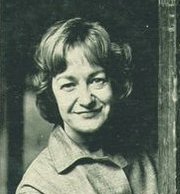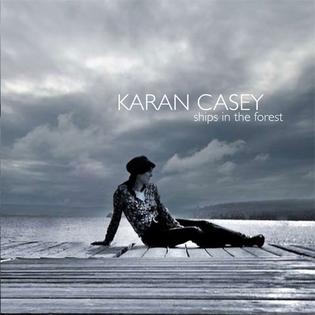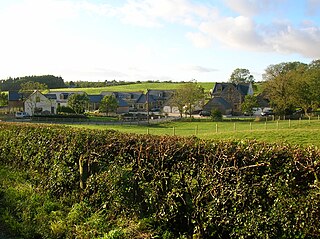Related Research Articles

James Henry Miller, better known by his stage name Ewan MacColl, was a folk singer-songwriter, folk song collector, labour activist and actor. Born in England to Scottish parents, he is known as one of the instigators of the 1960s folk revival as well as for writing such songs as "The First Time Ever I Saw Your Face" and "Dirty Old Town".
"Scarborough Fair" is a traditional English ballad. The song lists a number of impossible tasks given to a former lover who lives in Scarborough, North Yorkshire. The "Scarborough/Whittingham Fair" variant was most common in Yorkshire and Northumbria, where it was sung to various melodies, often using Dorian mode, with refrains resembling "parsley, sage, rosemary and thyme" and "Then she'll be a true love of mine." It appears in Traditional Tunes by Frank Kidson published in 1891, who claims to have collected it from Whitby.

"Lord Randall", or "Lord Randal", is an Anglo-Scottish border ballad consisting of dialogue between a young Lord and his mother. Similar ballads can be found across Europe in many languages, including Danish, German, Magyar, Irish, Swedish, and Wendish. Italian variants are usually titled "L'avvelenato" or "Il testamento dell'avvelenato", the earliest known version being a 1629 setting by Camillo il Bianchino, in Verona. Under the title "Croodlin Doo" Robert Chambers published a version in his "Scottish Ballads" (1829) page 324

Margaret "Peggy" Seeger is an American folk singer. She has lived in Britain for more than 60 years, and was married to the singer and songwriter Ewan MacColl until his death in 1989.
"The Elfin Knight" is a traditional Scottish folk ballad of which there are many versions, all dealing with supernatural occurrences, and the commission to perform impossible tasks. The ballad has been collected in different parts of England, Scotland, Ireland, the US, and Canada. As is the case with most traditional folk songs, there have been countless completely different versions recorded of the same ballad. The first broadside version was printed before 1674, and the roots of the song may be considerably older.

Isla Cameron was a Scottish-born, English-raised actress and singer. AllMusic noted that "Cameron was one of a quartet of key figures in England's postwar folk song revival – and to give a measure of her importance, the other three were Ewan MacColl, A. L. Lloyd, and Alan Lomax". She was a respected and popular folk music performer through the 1950s and early 60s as well as appearing in several films; she focused almost exclusively on her acting career from 1966 onwards. Cameron provided the singing voice for actress Julie Christie's part in the hit 1967 film version of Thomas Hardy's Far From the Madding Crowd, but changed career direction and became a film researcher in the early 1970s before her early death in a domestic accident in 1980. One of the traditional songs in her repertoire, "Blackwaterside", recorded by Cameron in 1962, was subsequently popularised by notable "next generation" U.K. folk music performers Anne Briggs, Bert Jansch and Sandy Denny.
The Bonnie Lass o' Fyvie is a Scottish folk song about a thwarted romance between a soldier and a girl. Like many folk songs, the authorship is unattributed, there is no strict version of the lyrics, and it is often referred to by its opening line "There once was a troop o' Irish dragoons". The song is also known by a variety of other names, the most common of them being "Peggy-O", "Fennario", and "The Maid of Fife".
"South Australia" is a sea shanty, also known under such titles as "Rolling King" and "Bound for South Australia". As an original worksong it was sung in a variety of trades, including being used by the wool and later the wheat traders who worked the clipper ships between Australian ports and London. In adapted form, it is now a very popular song among folk music performers that is recorded by many artists and is present in many of today's song books.

"The Dowie Dens o Yarrow", also known as "The Braes of Yarrow" or simply "Yarrow", is a Scottish border ballad. It has many variants and it has been printed as a broadside, as well as published in song collections. It is considered to be a folk standard, and many different singers have performed and recorded it.
"Ye Jacobites by Name" is a traditional Scottish folk song which goes back to the Jacobite risings in Scotland (1688–1746). While the original version simply attacked the Jacobites from a contemporaneous Whig point of view, Robert Burns rewrote it in around 1791 to give a version with a more general, humanist anti-war, but nonetheless anti-Jacobite outlook. This is the version that most people know today.
The (Bonnie) Rantin' Laddie or Lord Aboyne is a traditional Scottish folk ballad telling of the valiant rescue of his lover by a noble Highland lord.
"The Road to the Isles" is a famous tune composed by Pipe Major John McLellan DCM which was originally called ‘The Bens of Jura’, though it previously had other titles. It is part of the Kennedy-Fraser collection and it appeared in a book entitled 'Songs of the Hebrides' published in 1917, with the eponymous title by the Celtic poet Kenneth Macleod. The poem is headed by the statement 'Written for the lads in France during the Great War'. The impression is given by the notes appended to the book that the author was Kenneth Macleod himself. Marjory Kennedy-Fraser toured the Western Isles of Scotland in the summer of 1917 and collected a group of local tunes. The tune associated with the Road to the Isles was an air played by Malcolm Johnson of Barra on a chanter and composed by Pipe Major John McLellan of Dunoon. Kenneth Macleod then wrote the words for a voice and harp arrangement of this air by Patuffa Kennedy-Fraser.

Ships in the Forest is a studio album by Irish traditional singer Karan Casey, and the first to be released primarily on her own label. The album features much of Casey's live band, as well as her brother-in-law and husband, both members of the band Buille. The album features one song in Irish and many Irish traditional songs. There is also a song by Joni Mitchell.

Belafonte on Campus is an album by Harry Belafonte, released in 1967.
Cam ye o'er frae France? is a Scots folk song from the time of the Jacobite rebellions of the 18th century. It satirises the marital problems of the Hanoverian George I.
Marion Emily Angus (1865–1946) was a Scottish poet who wrote in the Scots vernacular or Braid Scots, defined by some as a dialect of English and others as a closely related language. Her prose writings are mainly in standard English. She is seen as a forerunner of a Scottish renaissance in inter-war poetry – her verse marks a departure from the Lallans tradition of Robert Burns towards that of Hugh MacDiarmid, Violet Jacob and others.

"The Manchester Rambler", also known as "I'm a Rambler" and "The Rambler's Song", is a song written by the English folk singer Ewan MacColl in 1932. It was inspired by his participation in the Kinder trespass, a protest by the urban Young Communist League of Manchester, and was the work that began MacColl's career as a singer-songwriter.
Van Diemen's Land or Henry the Poacher, Young Henry's Downfall, Beware Young Men. is an English transportation ballad. It was widely published in broadsides during the 19th century, and was collected from traditional singers in England during the twentieth century. It has been recorded by many singers influenced by the British folk revival.
Transportation ballads are a genre of broadside ballad some of which became an important part of the folk song traditions of Britain and Ireland. They concern the transportation of convicted criminals firstly to the American colonies and then to penal colonies in Australia. Transportation ballads were published as broadsides,. Many have passed into the folk tradition and have been collected subsequently from traditional singers.

Handsome Nell was the first song written by Robert Burns, often treated as a poem, that was first published in the last volume of James Johnson's Scots Musical Museum in 1803 (No.551) with an untitled tune. Burns recorded in holograph on page three of his first Commonplace Book that he wrote the song or Rhyme at the age of only fifteen whilst living at Mount Oliphant Farm, it is regarded as his earliest production, inspired by a farm servant aged fourteen, named either Nelly Kilpatrick or Nelly Blair. Some confusion exists as he also gave his age as 16 in his autobiographical letter to Dr. Moore; the autumn of 1774 is generally accepted.
References
- ↑ Clinton Heylin, Pam Winters Solo: The Life of Sandy Denny – 2000 Page 45 The four suggestions that came back were all good Celtic folksongs, 'I Once Loved A Lass' (which Sandy later recorded as 'The False Bride'), 'Jute Mill Song' (made popular by Ewan MacColl), 'She Moved Through The Fair' and the ballad of ...
- ↑ Edith Fowke, Jay Rahn A Family Heritage: The Story and Songs of LaRena Clark 1994– Page 103 1895176360 ”I Once Loved a Lass” is also lighthearted and its theme is similar to that of "Adieu to Cold Winter" with a reversal of sexes: here ... Its title has been used in Scotland for a song more commonly known as "The False Bride" that also tells of a man ..."
- 1 2 3 Mainly Norfolk, The False Bride
- 1 2 Whyte, Jack (24 July 2015). "How many strawberries grow in the salt sea?". The Daily Courier. Kelowna, Canada. Retrieved 6 September 2016.